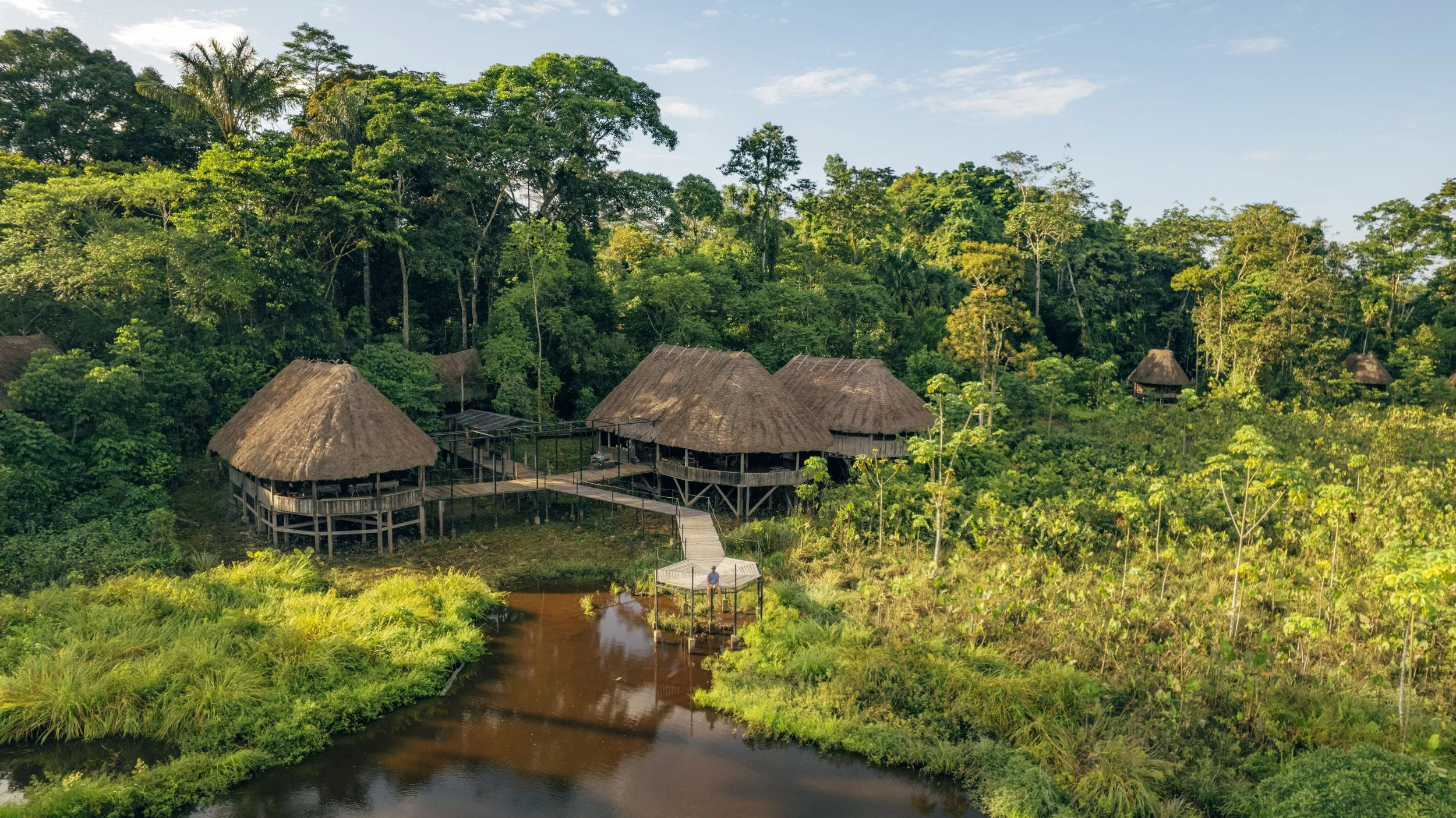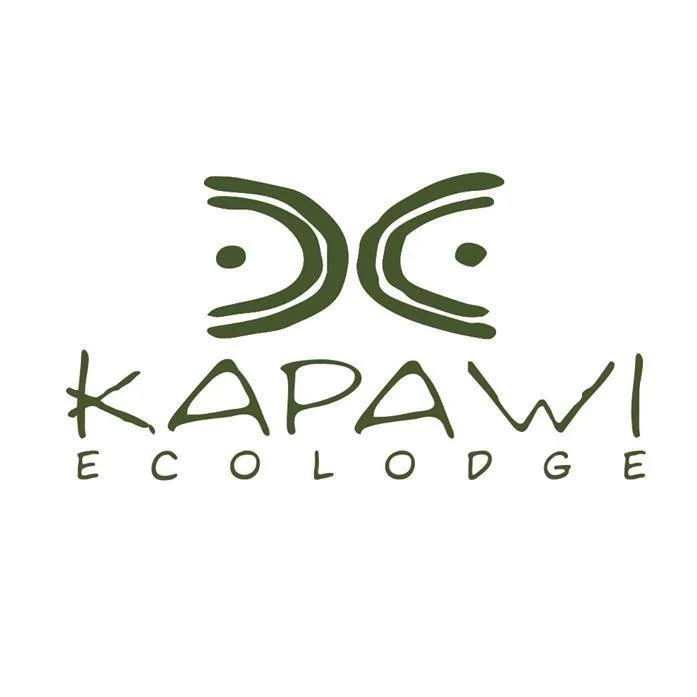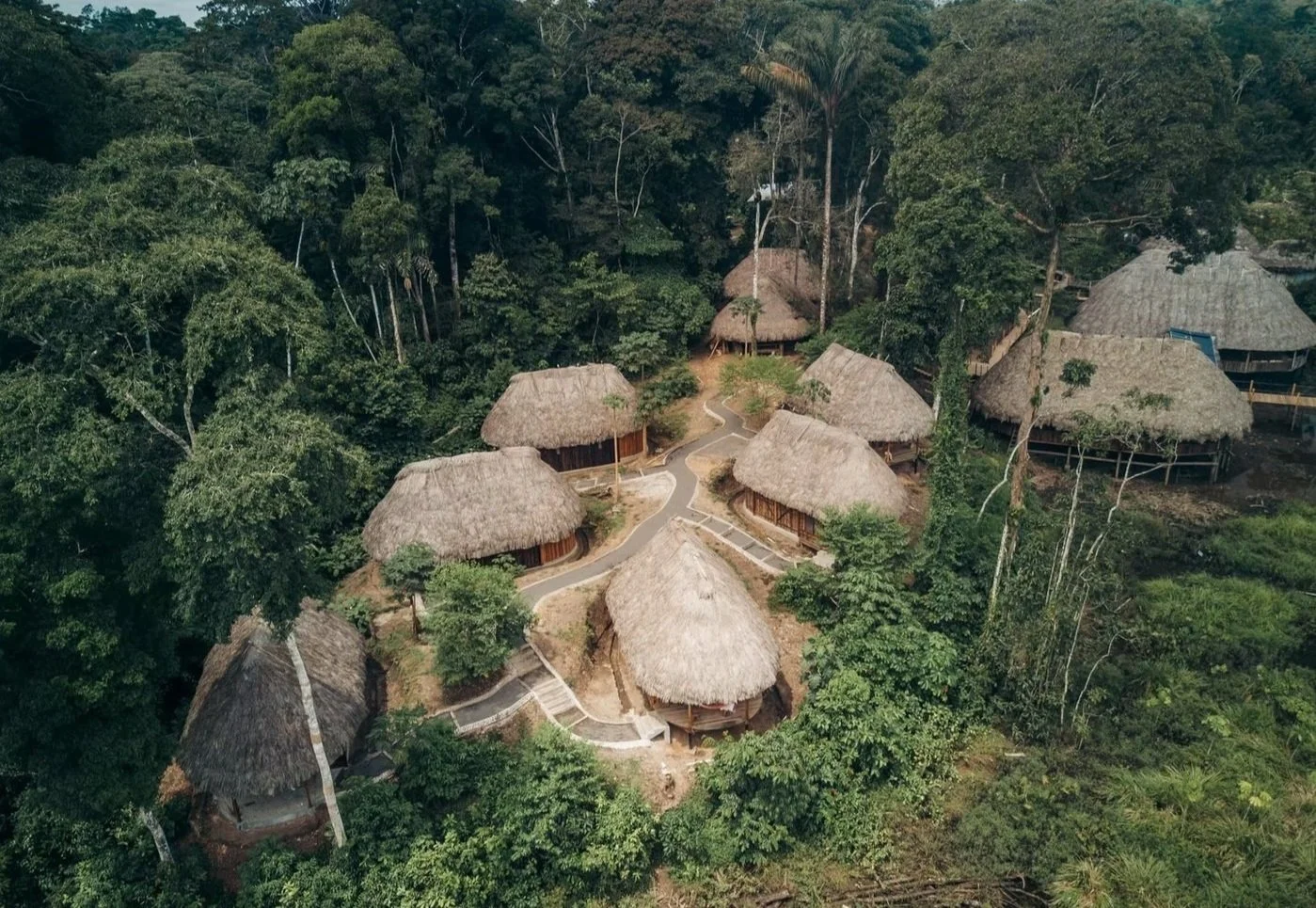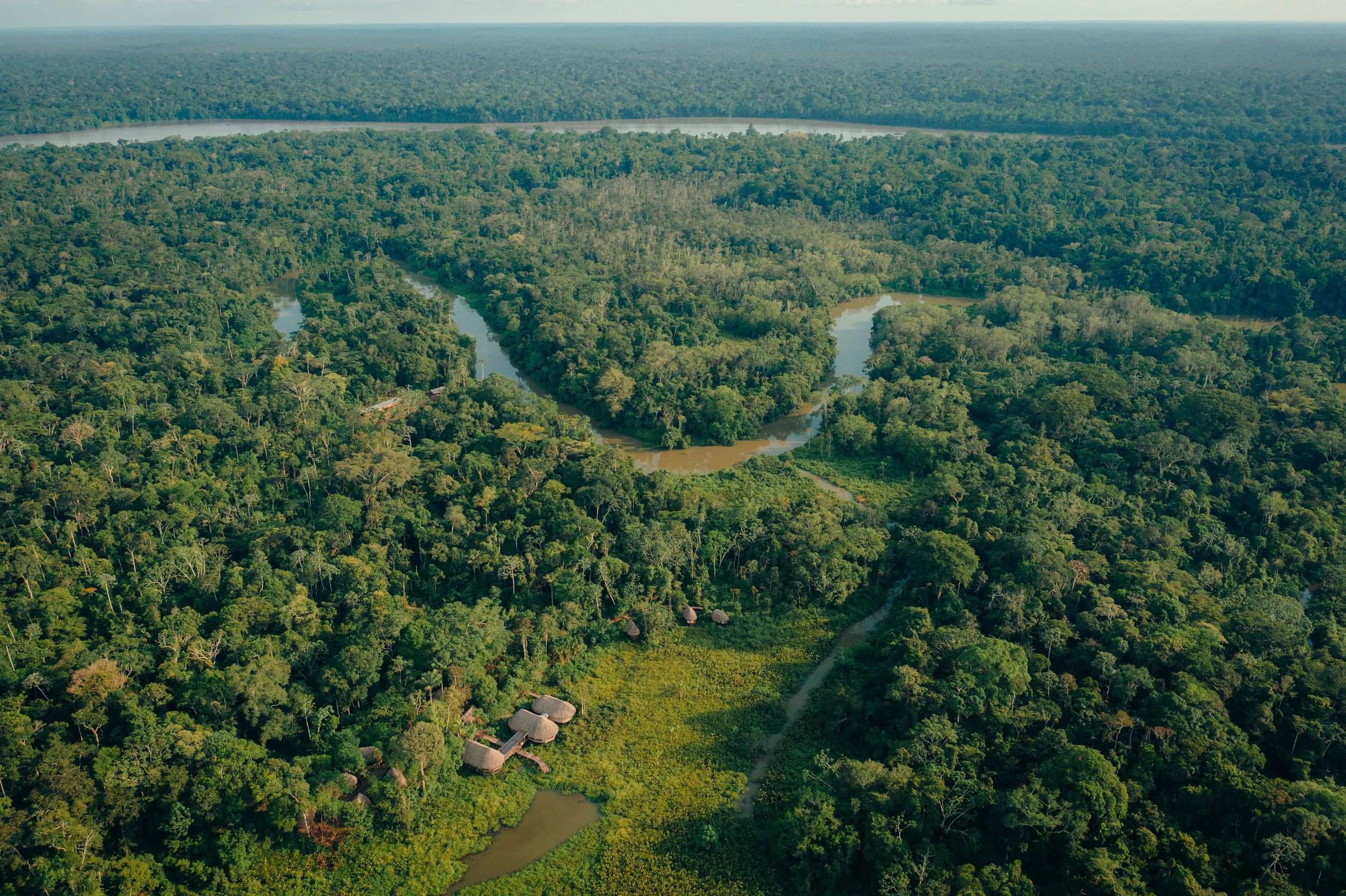KAPAWI ECOLODGE
ASOCICION DE SERVICIOS TURISTICOS KAPAWI ECOLODGE
PASTAZA, ECUADOR
2026 GRANTEE | $15,000 | NOMINATED BY TIERRA DEL VOLCAN
The organization will use the funding to install a solar energy system at Kapawi Ecolodge, train local community members, and expand clean energy access across 10 Indigenous communities in the Amazon, helping reduce fossil fuel use and protect over 50,000 hectares of critical biodiversity.
The Issue:
The Achuar territory of the Ecuadorian Amazon, home to some of the world’s last remaining tracts of primary rainforest, is under mounting threat from extractive industries, deforestation, road construction, and the expansion of industrial agriculture. These external pressures not only endanger fragile biodiversity—including emblematic species like jaguars, pink river dolphins, and harpy eagles—but also pose a serious risk to the cultural survival and self-determination of the indigenous Achuar communities who have lived in harmony with this ecosystem for generations.
In this isolated region, where there are no roads and travel occurs primarily by river, energy access remains one of the biggest challenges. Most communities and tourism operations rely on diesel generators for power, creating dependency on expensive, polluting fossil fuels that must be transported in by boat. This reliance not only increases the region’s carbon footprint but also undermines efforts toward environmental stewardship and sustainable economic alternatives. Without access to clean, renewable energy, it is difficult to fully realize the long-term potential of community-led ecotourism as a viable conservation and resilience strategy.
Grant Award Use:
Funding from the ATCF will directly support the installation of a solar energy system at Kapawi Ecolodge—one of the most remote and pioneering indigenous-owned ecolodges in South America. The lodge, owned and operated by the Achuar communities of Kapawi, Suwa, and Kusutkau, has served as a regional model for sustainable ecotourism for over 30 years. This new solar system will power critical lodge operations and reduce the need for diesel fuel, dramatically lowering the ecological footprint of tourism in the region.
In addition to the installation itself, the grant will support hands-on training for Achuar community members in solar system management, operation, and maintenance. This investment in local capacity will enable the project to be sustainable beyond its initial implementation and create technical skills that are transferable to other communities. The lodge will serve as a demonstration site, with the long-term goal of scaling clean energy infrastructure across ten neighboring Achuar communities. Ultimately, the project aims to catalyze a broader transition to low-impact energy and transportation systems that support biodiversity protection, climate resilience, and community self-reliance across 50,000 hectares of indigenous-managed rainforest.
What Would a Successful Project Result In?
Installation of a functioning photovoltaic solar system at Kapawi Ecolodge.
Elimination of fossil fuel use for key energy needs at the lodge.
Community members trained to manage and maintain solar infrastructure.
Reduction of greenhouse gas emissions and water pollution from fuel-based energy.
Strengthened regional momentum to expand clean energy solutions across the 50,000-hectare Achuar territory.
Voices From The Community:
“When it opened in 1996, Kapawi Ecolodge pioneered the use of solar energy in the Amazon Rainforest of Ecuador. Almost 30 years later, this initial effort has prevented the use of over 100,000 gallons of diesel fuel, or 2,000 Tons of CO2e. This grant is very special for 2 reasons. First, it will allow our entire complex and grounds to finally become 100% electric. And second, because it adds to a larger growing effort to eliminate the use of fossil fuels along the Capahuari river, where emblematic species such as pink river dolphins are a key conservation indicator and a key part of the travelers’ experience."
— Juan Carlos, Kapawi Ecolodge & Trek Ecuador DMC








